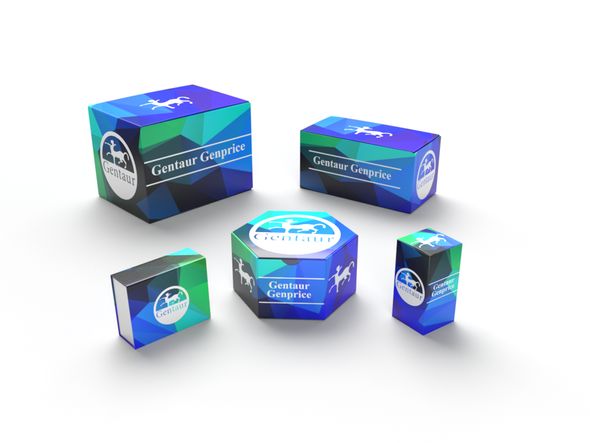740
Mouse Tumor necrosis factor ligand superfamily member 9 (TNFSF9) ELISA Kit | AE13966MO
- SKU:
- 740-AE13966MO
- Availability:
- Usually ships in 5 working days
Description
Mouse Tumor necrosis factor ligand superfamily member 9 (TNFSF9) ELISA Kit | AE13966MO | Gentaur UK, US & Europe Distribution
Species Reactivity: Mouse (Mus musculus)
Abbreviation: TNFSF9
Alternative Name: 4-1BB-L; CD137L; homolog of mouse 4-1BB-L|receptor 4-1BB ligand
Application: ELISA
Range: 7.8-500 pg/mL
Sensitivity: 2.7 pg/mL
Intra-Assay: ≤4.6%
Inter-Assay: ≤6.3%
Recovery: 1, 05
Sample Type: Serum, Plasma, Other biological fluids
Detection Method: Sandwich
Analysis Method : Quantitive
Test Principale: This assay employs a two-site sandwich ELISA to quantitate TNFSF9 in samples. An antibody specific for TNFSF9 has been pre-coated onto a microplate. Standards and samples are pipetted into the wells and anyTNFSF9 present is bound by the immobilized antibody. After removing any unbound substances, a biotin-conjugated antibody specific for TNFSF9 is added to the wells. After washing, Streptavidin conjugated Horseradish Peroxidase (HRP) is added to the wells. Following a wash to remove any unbound avidin-enzyme reagent, a substrate solution is added to the wells and color develops in proportion to the amount of TNFSF9 bound in the initial step. The color development is stopped and the intensity of the color is measured.
Product Overview: TNFSF9 is a cytokine that belongs to the tumor necrosis factor (TNF) ligand family. This transmembrane cytokine is a bidirectional signal transducer that acts as a ligand for TNFRSF9/4-1BB, which is a costimulatory receptor molecule in T lymphocytes. This cytokine and its receptor are involved in the antigen presentation process and in the generation of cytotoxic T cells. The receptor TNFRSF9/4-1BB is absent from resting T lymphocytes but rapidly expressed upon antigenic stimulation. The ligand encoded by this gene, TNFSF9/4-1BBL, has been shown to reactivate anergic T lymphocytes in addition to promoting T lymphocyte proliferation. This cytokine has also been shown to be required for the optimal CD8 responses in CD8 T cells. This cytokine is expressed in carcinoma cell lines, and is thought to be involved in T cell-tumor cell interaction.
Stability: The stability of ELISA kit is determined by the loss rate of activity. The loss rate of this kit is less than 5% within the expiration date under appropriate storage condition. The loss rate was determined by accelerated thermal degradation test. Keep the kit at 37°C for 4 and 7 days, and compare O.D.values of the kit kept at 37°C with that of at recommended temperature. (referring from China Biological Products Standard, which was calculated by the Arrhenius equation. For ELISA kit, 4 days storage at 37°C can be considered as 6 months at 2 - 8°C, which means 7 days at 37°C equaling 12 months at 2 - 8°C) .






